Seeing Glass Children
Veanne Tan
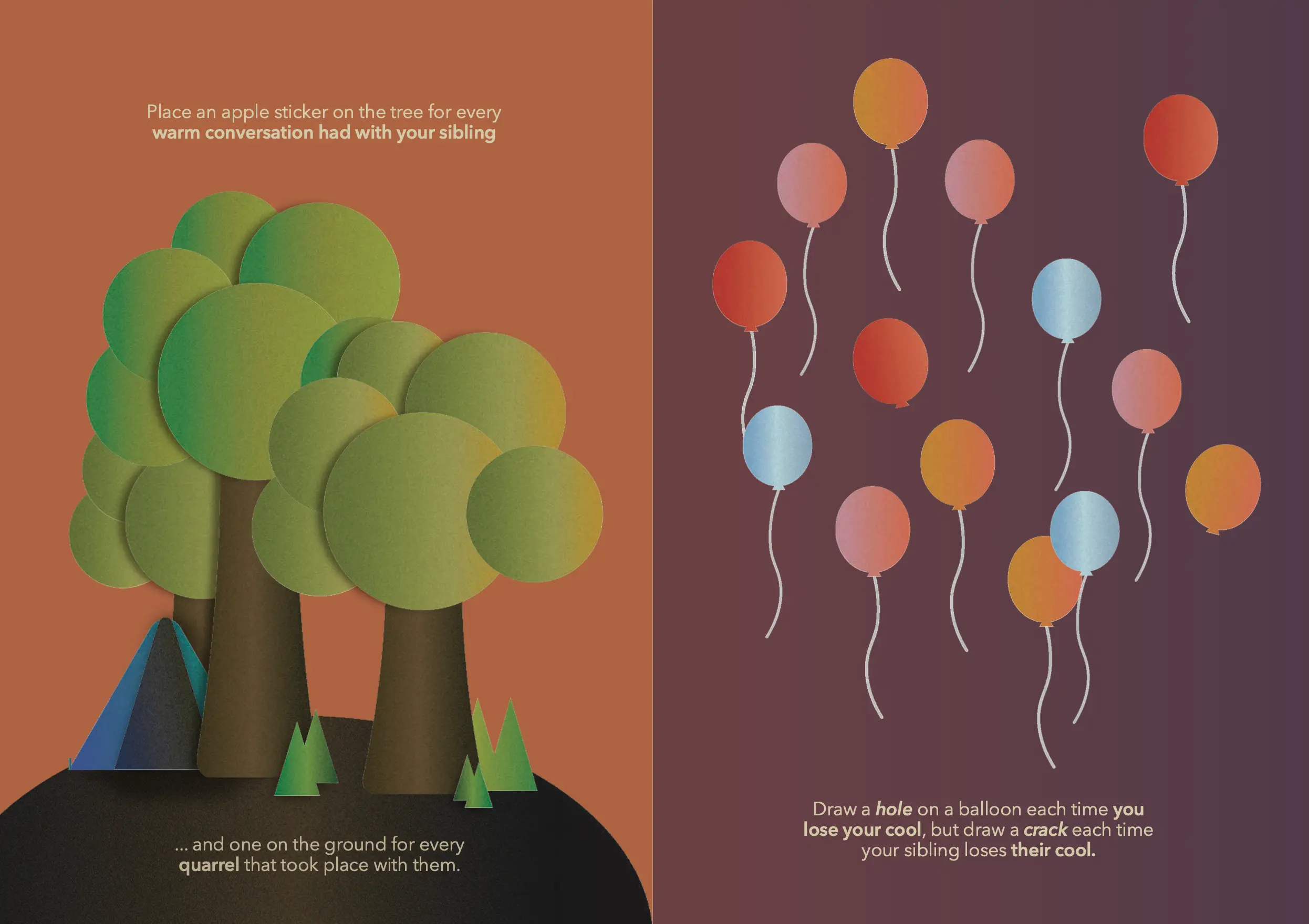
While much attention is rightly focused on individuals with disabilities and their primary
caregivers, siblings of disabled children tend to be overshadowed, despite their growing-up
experience being unique too. Through empathic design, Seeing Glass Children seeks to stand in the
shoes of glass children in Singapore, gathering insights into their specific contexts and ultimately
shaping design ideas that support them during adolescence — fostering self-empathy,
self-understanding,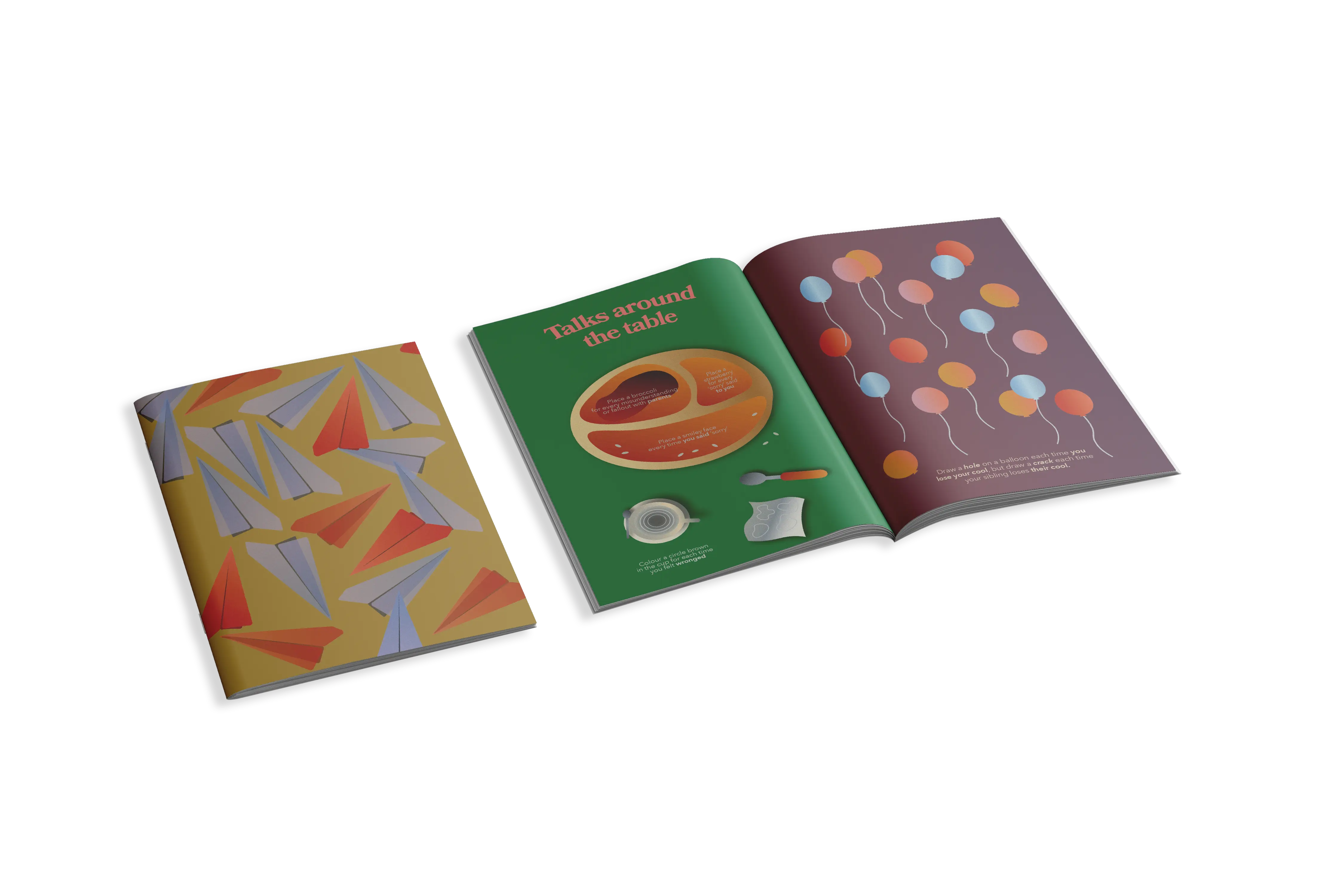 bridging communication gaps
within families, and promoting greater sensitivity
from the broader community. This project represents Veanne's dedication to uncovering and
understanding the lives of children with disabled siblings.
bridging communication gaps
within families, and promoting greater sensitivity
from the broader community. This project represents Veanne's dedication to uncovering and
understanding the lives of children with disabled siblings.
How did you get interested in this target group?
I got into this because I'm a youth leader in my church so I take care of a lot of teenagers. Some of them I've heard from either have autism, special needs or disabilities, or their siblings have special needs and disabilities. So having that experience with them and knowing their lives, actually I get a glimpse into what their lives are like.
I mean, over the years there has been a lot more traction when it comes to glass children. Like on TikTok, it became quite a big hashtag for a period of time. People started to talk about it and say, “oh, I realised that I'm a glass child” or “my sibling is a glass child”. But in Singapore there's not a lot of research done on this. There have been support groups but we know quite little about it and it's just not as widespread which is also again, not unsurprising. What I wanted to do with my project was to have something that is expandable and something that has longevity. And at least plant a bit of impact with people.
So with your project, what do you hope to address or help with?
There are three main things when it comes to my project. The first has to
do with glass children. During the teenage years, they may not be very full of expression and may
not know what's happening. There's so many changes that's going on and in their unique context and
households, it makes things even more different and difficult. So the first outcome is about that
self-reflection and processing of how they
feel. I came up with this customised and short
journal because writing about feelings may not be a very natural thing for everyone.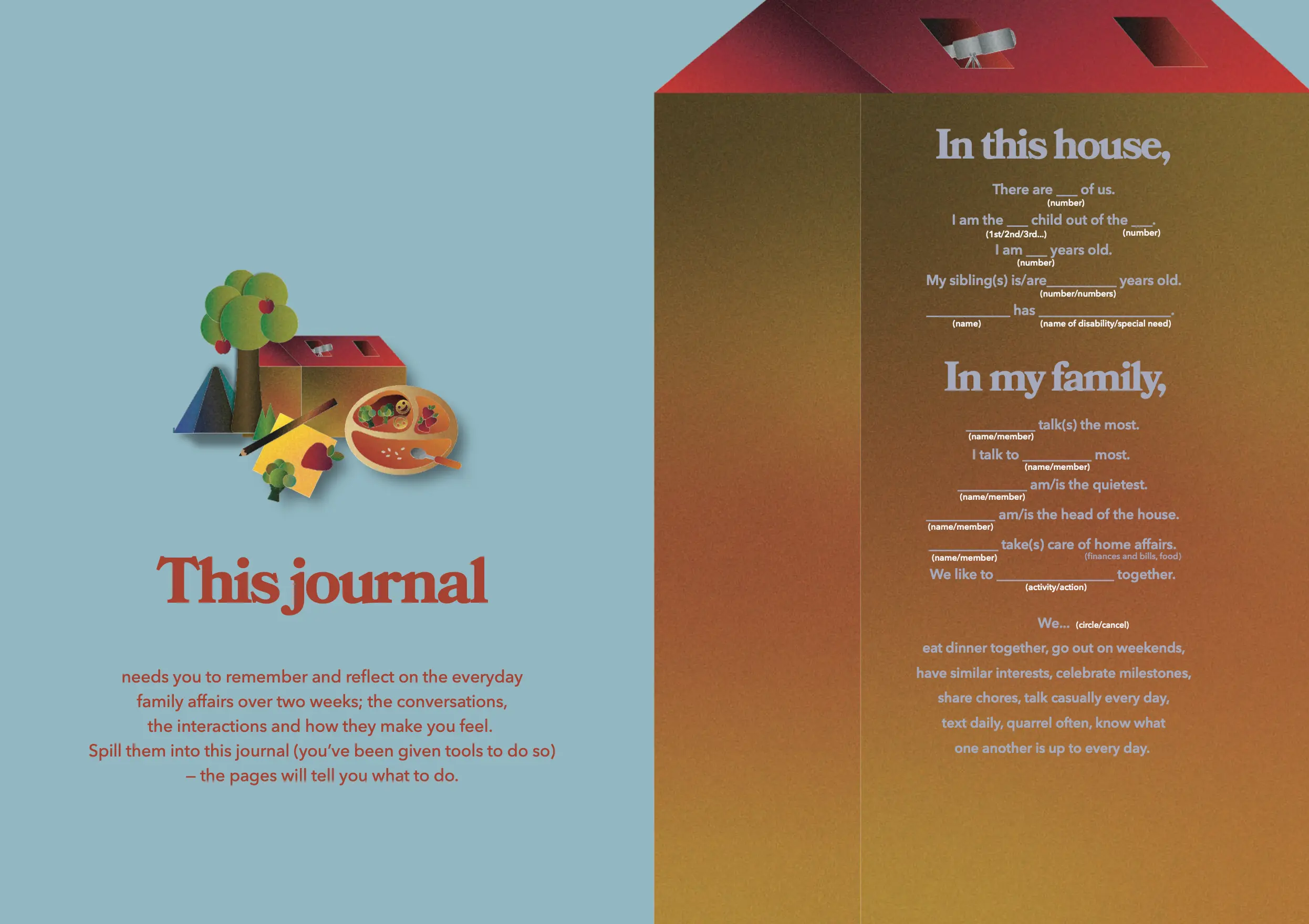 So it’s
something short and feasible to complete; something that they can return to every single day.
So it’s
something short and feasible to complete; something that they can return to every single day.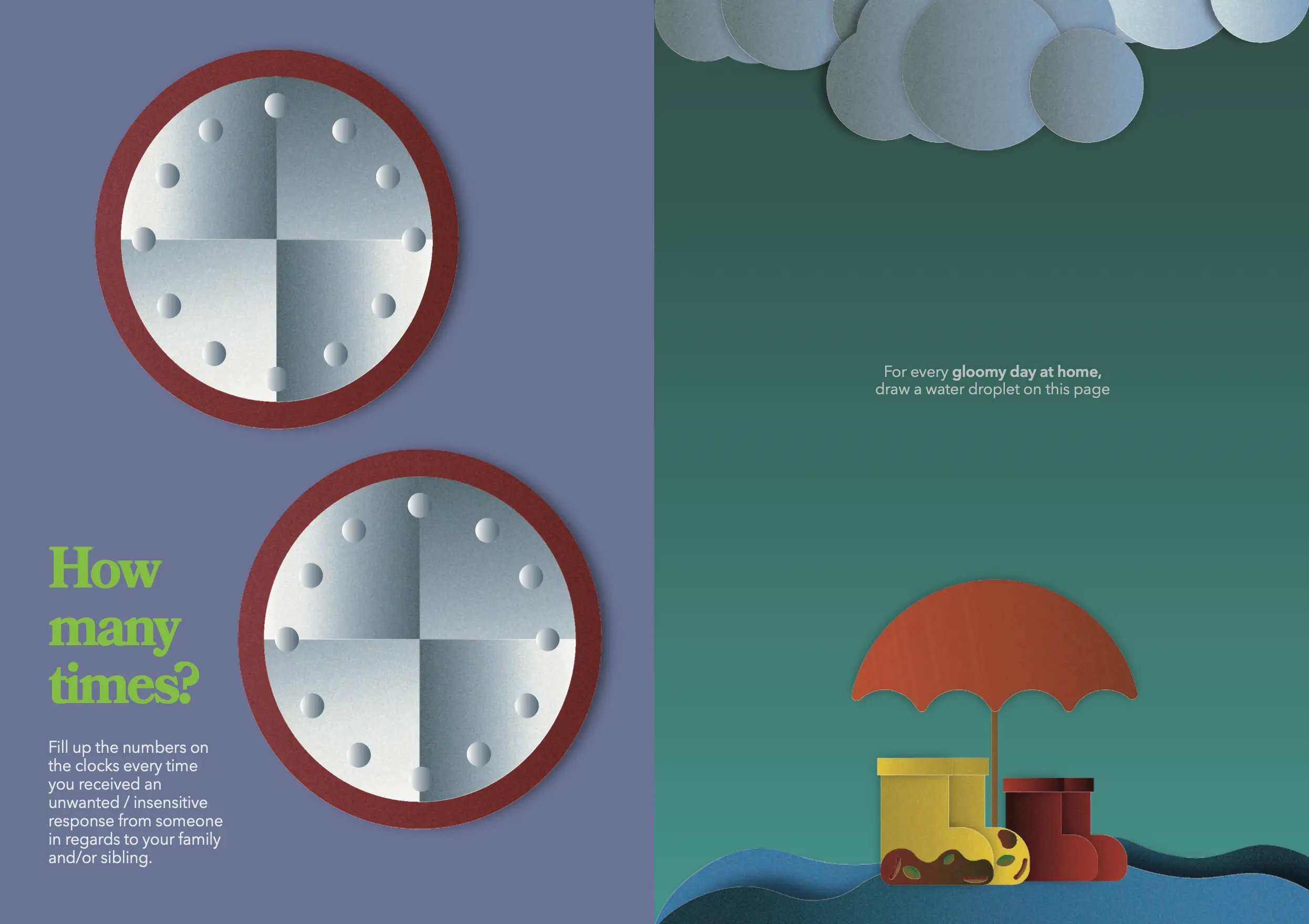
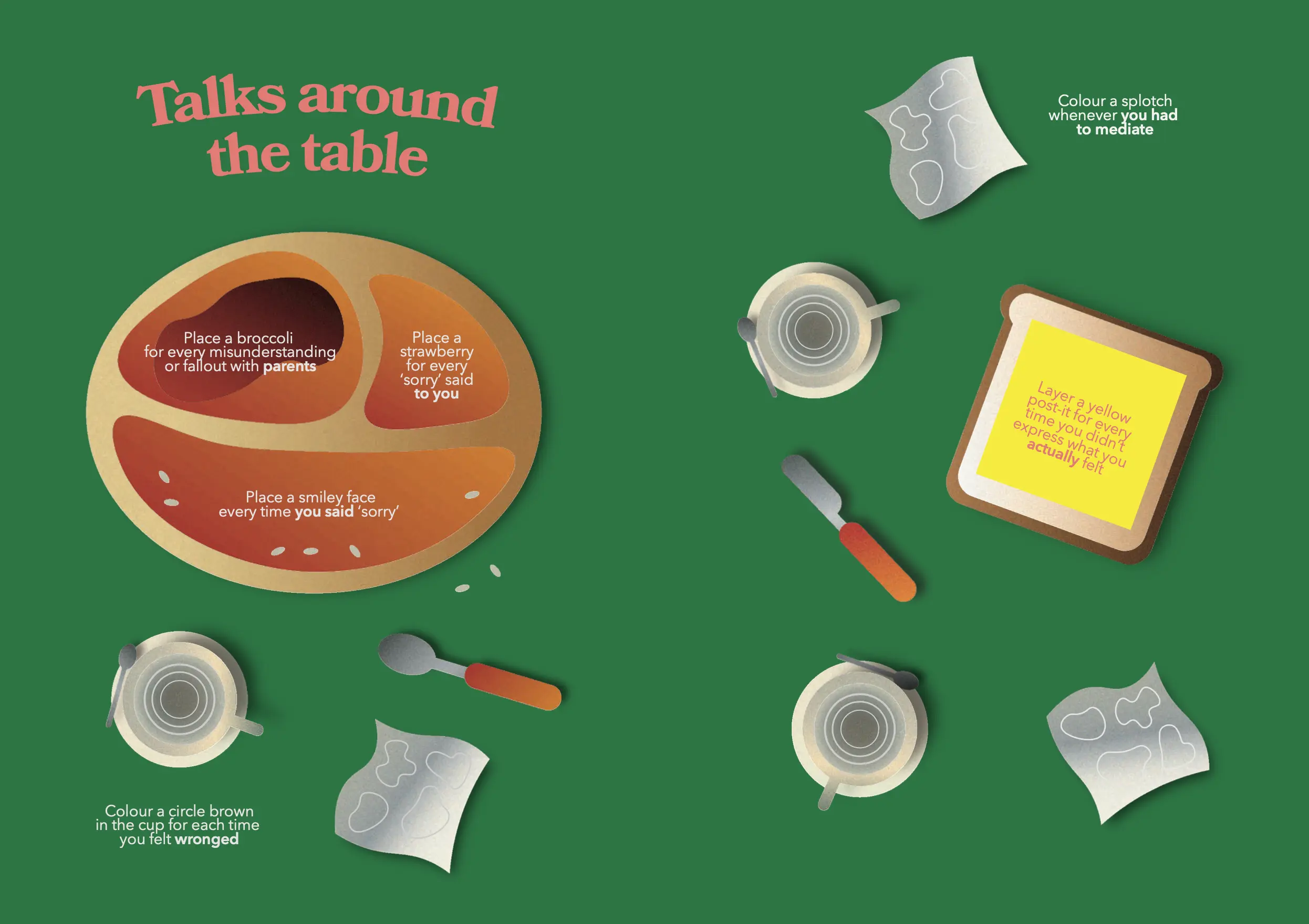
One insight is that not all the time do they feel very bitter towards their family. Again, it depends on how extreme the disabilities are or what their parents are like. The biggest thing is that they just want to communicate with their parents better or be reached out to by their parents. At the same time, there are things that maybe you would rather not approach with your parents. Like how do you tell your parents, if you're not very close to them, that they're being unfair to you? If I'm a kid, I would expect my parents to do that for me because they know better. How do I know to grow in my communication skills?
I definitely would not want to make it difficult for the families to start
communicating again, so I came up with an activity sheet that they can stick on their fridge.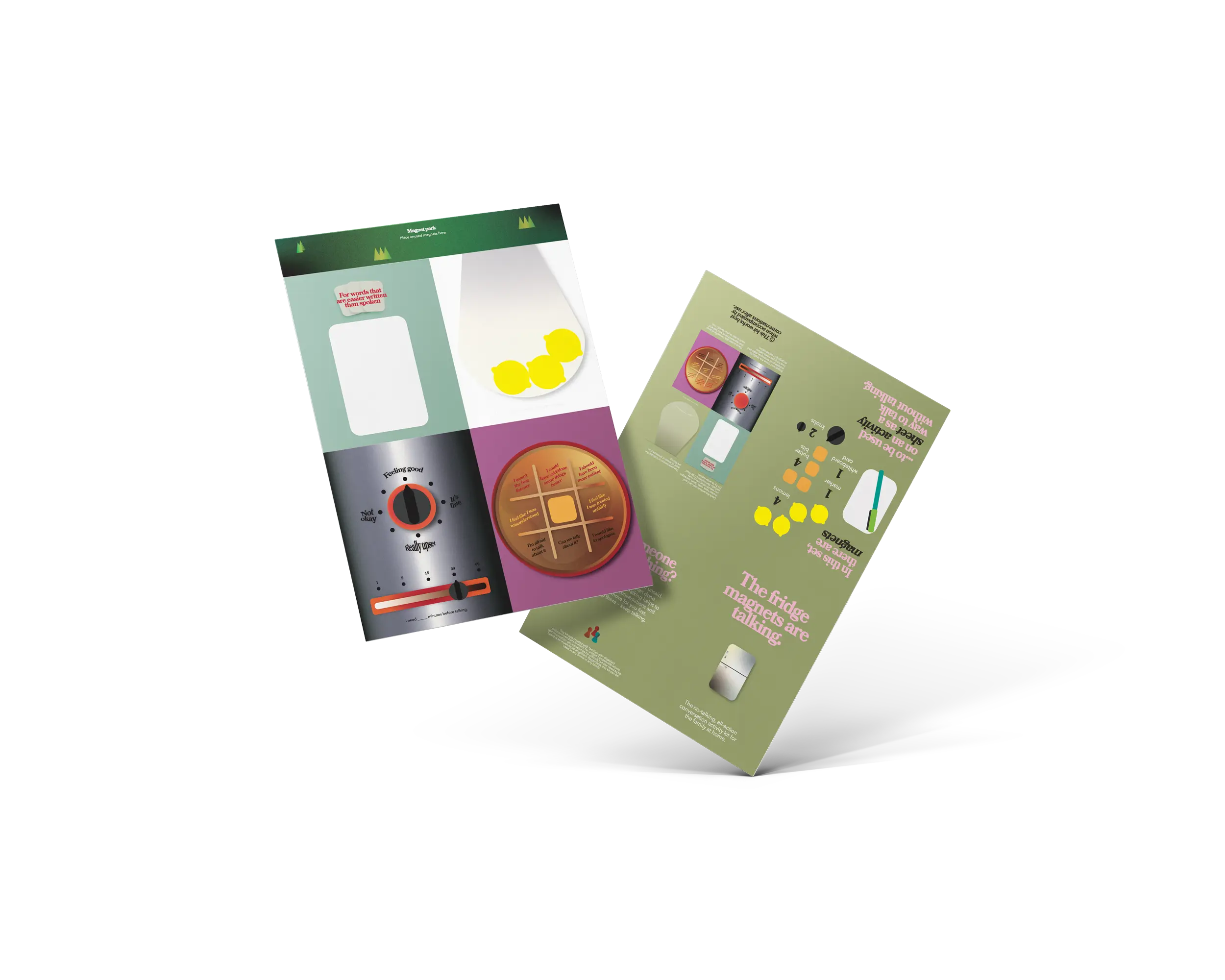 They
can tell their parents how they feel; how much time they need before speaking about something; what
are some things that they want to tell that they’d rather not speak about. They can even indicate
how they want to apologise, maybe “I should have been a better listener”. So it's something that
would kick start conversations
with their families. But of
course, it also requires families who want to talk to their family members. If they’re so estranged,
then this is not gonna work for them. I'm still in the process of seeing if there is any other way
to do that for such families.
They
can tell their parents how they feel; how much time they need before speaking about something; what
are some things that they want to tell that they’d rather not speak about. They can even indicate
how they want to apologise, maybe “I should have been a better listener”. So it's something that
would kick start conversations
with their families. But of
course, it also requires families who want to talk to their family members. If they’re so estranged,
then this is not gonna work for them. I'm still in the process of seeing if there is any other way
to do that for such families.
The last thing would be a website which is supposed to be a one-stop repository where there are resources. Families can have access to the kits and buy them if they want. It explains to them what these things are and then talks about stories. These are adaptations of the interviews I've done and I would illustrate the different stories. I don't want to make light of this, but at the same time, if it's something that's too academic, it's not gonna serve its purpose of making it more widespread. Then there are resources where we give whatever that we know about glass children and families with disabled children, and at the same time put out support groups that are willing to be made available.
See Bearing Stories, and Neither Here Nor There
See Antidotes of Bruised Creatives, Being Able to be Unable, and Brushstrokes of Dyslexia
See Bearing Stories, and Nusantara Bergaul